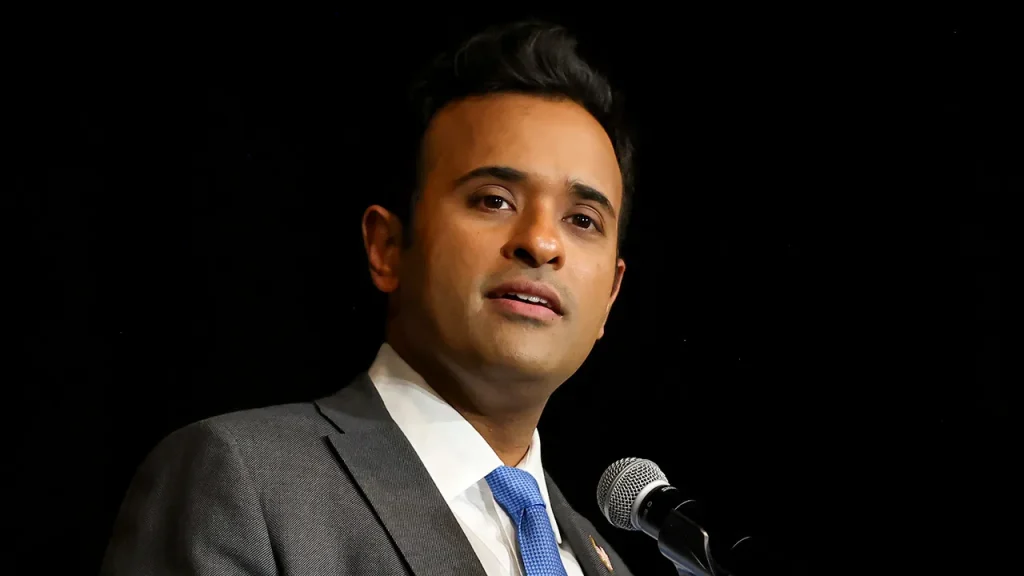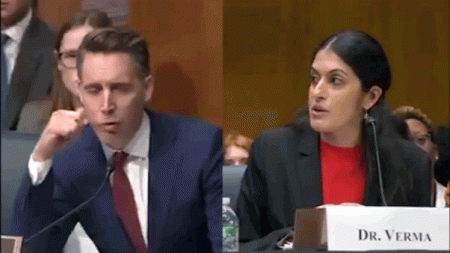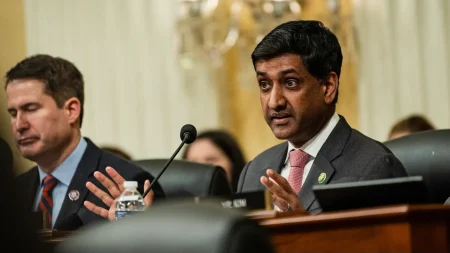Republicans Face Crushing Defeats: Lessons and Future Directions
In a candid assessment following a series of Democratic victories across the country, former GOP presidential candidate and DOGE chief Vivek Ramaswamy didn’t mince words: “We got our a–es handed to us.” Speaking in the aftermath of Republican defeats in New York City, Virginia, New Jersey, and California, Ramaswamy, who is currently running for Ohio governor, offered a straightforward analysis of what went wrong and what his party needs to do differently. His blunt admission serves as a wake-up call for Republicans who must now reconsider their approach as they look toward future elections, including his own gubernatorial race in Ohio.
Ramaswamy identified two critical lessons for Republicans to internalize going forward. First, he emphasized that the GOP must focus their messaging squarely on affordability issues that directly impact voters’ daily lives. “Our side needs to focus on affordability. Make the American dream affordable, bring down costs: electric costs, grocery costs, healthcare costs and housing costs. And lay out how we’re going to do it,” Ramaswamy stated. This pivot toward kitchen-table economics suggests a recognition that voters are primarily concerned with their financial well-being, and that Republicans have failed to adequately address these concerns or offer convincing solutions. The suggestion represents a potential strategic shift away from culture war issues toward practical economic matters that affect Americans regardless of political affiliation.
The second lesson Ramaswamy highlighted was the need for Republicans to abandon identity politics, which he characterized as the domain of the “woke left.” “Cut out the identity politics, it doesn’t suit Republicans, it’s not for us,” he advised, adding that Republicans should focus on character rather than immutable characteristics: “We don’t care about the color of your skin or your religion. We care about the content of your character, that’s who we are.” This statement represents both a tactical recommendation and a philosophical position, suggesting that Republicans have been playing on terrain that naturally favors Democrats rather than emphasizing traditional conservative principles that might resonate more broadly with voters.
What makes these defeats particularly stinging for Republicans is that they occurred despite several Democratic candidates being embroiled in controversies that might typically damage electoral prospects. In Virginia, Democrat Jay Jones defeated Republican incumbent Attorney General Jason Miyares despite having to apologize for disturbing text messages in which he fantasized about violence against a Republican opponent and the opponent’s children. Similarly, in New Jersey, Governor-elect Mikie Sherrill faced questions about her alleged role in a cheating scandal during her time at the U.S. Naval Academy, with a former classmate suggesting she hadn’t been entirely forthcoming about her involvement. The fact that these candidates prevailed despite such controversies suggests that either voters were willing to overlook these issues or that Republican messaging failed to effectively capitalize on these vulnerabilities.
The electoral defeats are particularly personal for Ramaswamy, who had campaigned for both Lt. Gov. Winsome Earle-Sears in Virginia and Jack Ciattarelli in New Jersey, both of whom lost their gubernatorial bids. Prior to the elections, Ramaswamy had expressed optimism that GOP victories in these states would “set the table for even bigger and more decisive victories, hopefully in places like Ohio next year.” This optimism proved unfounded, and now Ramaswamy must adapt his own gubernatorial campaign strategy in light of these results. His willingness to acknowledge the magnitude of the defeats rather than downplay them suggests a pragmatic approach that could serve him well as he recalibrates his own political messaging.
As Republicans process these losses and look toward future elections, including the critical 2024 presidential race, Ramaswamy’s analysis offers a potential roadmap. By focusing on economic issues that directly impact voters’ lives and moving away from identity-based messaging that may alienate moderate voters, Republicans might find more electoral success. The question remains whether the party as a whole will heed these lessons or continue with strategies that, at least in this election cycle, proved ineffective against Democrats. For Ramaswamy himself, how well he implements his own advice in Ohio may determine whether he can avoid the fate of the candidates he supported in Virginia and New Jersey, or chart a different course for Republican success in increasingly challenging electoral terrain.














